There are multiple species and types of flies that have a lifespan ranging from a few days to a few years.
In this post, we are going to see how long do different types of flies live.
The lifecycle of a fly is normally divided into 4 stages. These are: 1) Egg 2) Larva 3) Pupa 4) Adult
It is seen in multiple scientific experiments that temperature, food availability, and some chemicals do affect the normal lifecycle of a fly. But, we are going to see them later in the article.
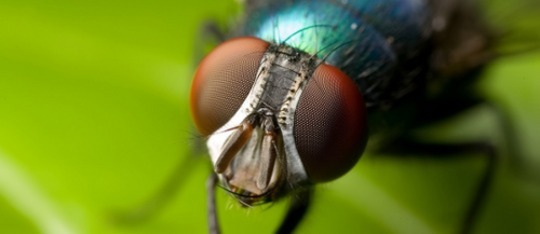
Now, let’s have a look at the lifespan of a fly.
Recommended Reading: How to kill house flies indoors
How Long do Different types of Flies live?
Flies developing in warm conditions with moderate food tend to grow faster and live longer than their counterparts in the wild.
Below is the table that can show you the approximate life expectancy for different types of flies:
| Fly Species | Lifespan as an Adult Fly | Total Lifespan of a Fly (Larva + Pupa + Adult) |
|---|---|---|
 House Fly | 15 – 60 days | 21 – 117 days |
 Fruit Fly | 16 – 30 days | 35 – 61 days |
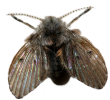 Drain Fly | 7 – 14 days | 17 – 31 days |
 Face Fly | 7 – 14 days | 21 – 35 days |
 Horse Fly | 30 – 60 days | 1 – 3 years |
 Flesh Fly | 10 – 14 days | 15 – 21 days |
 Deer Fly | 30 – 60 days | 1 – 3 years |
 Cluster Fly | 12 – 18 days | 30 – 50 days |
 Blow Fly | 7 – 20 days | 17 – 35 days |
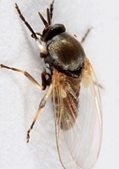 Buffalo Gnat | 7 – 14 days | 40 – 200 days |
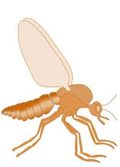 Sand Gnat | 4 – 15 days | 32 – 98 days |
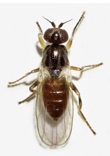 Eye Gnat | 7 – 21 days | 28 – 53 days |
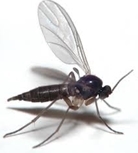 Fungus Gnat | 7 – 12 days | 18 – 30 days |
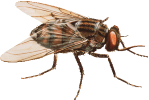 Stable Fly | 5 – 9 days | 24 – 61 days |
 Dobson Fly | 3 – 10 days | 20 – 38 days |
 Midges | 3 – 12 days | 19 – 64 days |
 Phorid Fly | 8 – 14 days | 42 – 69 days |
Note: It is important to note that the lifespan of a fly greatly depends on the temperature, food availability, and climate. And hence there may be slight variations in the above data.
Lifecycle of a Fly:
Now, after knowing about the lifespan of a fly let’s see the lifecycle of a fly. The lifecycle of any fly can be divided into 4 stages: Egg, Larva, Pupa, and Adult.
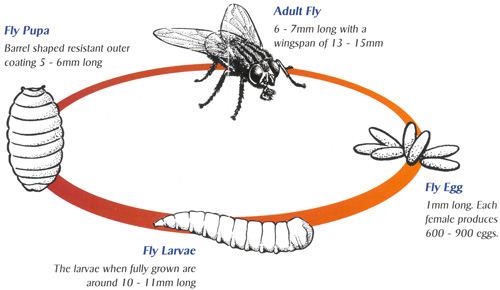
The lifecycle of a fly begins as an egg. After some time (a few days or months depending on the fly type) the egg hatches and the larva comes out of it. Larva feeds on the organic matter and when it has stored sufficient nutrients it goes into the pupal stage.
The pupal stage can again be of several days or months. During the pupal period, the development of the actual fly like features (wings, legs, etc) begin. From the pupa, the adult fly comes out and is ready to start the cycle again
Recommended Reading: Facts about Horse Flies
Factors affecting Fly Lifespan:
Food Availability: Scientists have seen that – At moderate food levels, an adult house fly lives for about 45 – 50 days. But when they have an unlimited supply of food they can only last for 30-35 days.
But on contrary to this, if flies were supplied with ample food during larval stages their lifespan and reproduction capabilities increases whereas it decreases for the flies which had less or moderate food during larval stages.
Temperature: Temperature has an important role in the growth of a housefly. For instance: at 99 degrees Fahrenheit a house fly egg hatches in about 8 hours, whereas it takes 2 days to hatch at a temperature of 39 degrees Fahrenheit.
In addition to this, in warmer temperatures, it takes 4 days for a larva to become an adult. But in colder temperatures, it can take up to 30 days.
So, this was all about how long does a fly live. Hope you would have liked it. Thanks!









